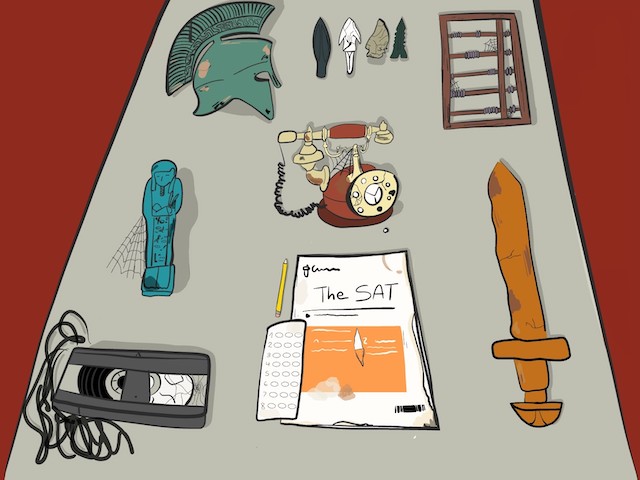Amid all of the challenges of COVID-19, the pandemic has accelerated innovation and overdue change in some areas.
COVID-19 disrupted students’ access to standardized testing this spring and summer, prompting students, parents and university admissions teams to reconsider the role of testing in the upcoming round of undergraduate college admissions.
Since March, universities across the country, including UT, have worked briskly to reimagine the college admission process. In response to these unforeseen circumstances, UT announced in June that it will adopt a test-optional policy for fall 2021 undergraduate admissions. Prospective Longhorns will not be required to submit an ACT or SAT test score as part of their admissions application.
However, a test “optional” admissions policy, as opposed to a policy which prohibits the submission and consideration of test scores altogether, only further advantages higher-income students whose resources and circumstances allow them to submit standardized test scores — even during a pandemic.
There is a clear consensus that there are racial, economic and cultural biases inherent in the construction, administration and preparation of standardized tests. They are also not accurate benchmarks of students’ academic readiness for college. UT should do away with standardized testing requirements altogether instead of keeping them optional.
Data presented demonstrates that high SAT and ACT scores are disproportionate factors of students’ family income, their parents’ education achievements and their race.
It is no longer an open question whether standardized testing adds value or is fair. It doesn't, and it is not.
UT should capitalize on the opening for change COVID-19 presents to dismantle the insidious impact of the “testing industrial complex” on college admissions. Test prep tutoring alone brings in an estimated quarter of a billion dollars annually.
Earlier this month, in response to COVID-19, Bay Area Judge Brad Seligman ordered the University of California System to immediately suspend standardized testing requirements in admissions. The judge’s ruling makes clear that COVID-19 has brought equity concerns regarding testing to the forefront of public issues.
There is a notable upside to this rapid shift.
“I think going through an admissions cycle without reliance on standardized testing is a great opportunity for us to put together an incoming class selected on their merits outside of SAT or ACT scores,” said Alexandra Wettlaufer, a French and comparative literature professor and the director of the Plan II Honors Program.
Wettlaufer also acknowledges the meaningful impact that decreased reliance on standardized testing at colleges and universities across the country has on diversity.
“(It) may well open the door for a more diverse student body at these institutions, which would be wonderful,” Wettlaufer said.
We’ve all had to collectively — and swiftly — rethink the ways we teach, learn, work and socialize. In the last few months I have assembled petri dishes in my kitchen for an online biology lab, applied for a job via Zoom and had my first telemedicine appointment.
The thing is, none of these “new” approaches are actually novel. We’ve simply lacked a collective push, until now, to respond to available technology and do things differently, even when doing so is objectively in service of fairness, increased access or lower costs.
UT must go beyond its interim pandemic test-optional policy. In the wake of the California ruling on standardized testing, UT has the opportunity to be a leader in higher education and do away with standardized testing requirements altogether.
Strelitz-Block is a Plan II sophomore from Austin, Texas.





















